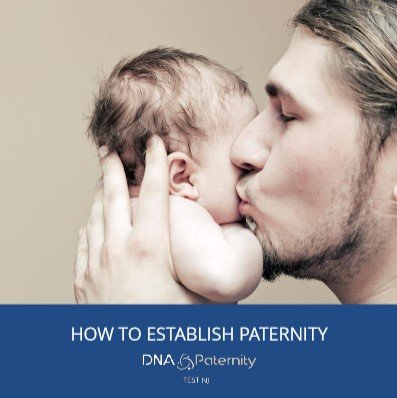What does establish paternity mean?
Establishing paternity is the legal process acknowledging the responsibilities of a child a man believes he is biologically related to himself.

Petition To Establish Paternity
Paternity establishment can be a straightforward process determined by your relationship status.
Unmarried couples
Unmarried fathers can establish paternity by signing the Acknowledgement of Paternity Form (AOP) at the hospital after birth. Disagreements about paternity require filing a paternity petition with Family Court in your city. The court will issue an order to appear and request a paternity test to prove paternity of a child.
Legal counsel is recommended to learn about paternity establishment in your state, as processes vary across jurisdictions.
Married Couples
The state automatically presumes the husband is the legal father of a child born into a marriage. Additional paperwork for paternity establishment is not required in these cases.
How long does it take to establish paternity?
Unfortunately, there is no set timetable for paternity establishment. Turnaround times will vary from state to state.
The relationship between the alleged father and mother of the child will affect how long this process may take. Below are some ways paternity can be established.
1. Paternity is established automatically when a man is married.
2. Signing an acknowledgment of paternity at the hospital or at child services office. This option pertains to unmarried men. Timetable (a few weeks) which varies from state to state.
3. Not responding to a court order. A default judgment automatically deems you the legal father of a child.
4. Filing a paternity petition. This option may have the longest turnaround time because the mother or guardian of the child may be difficult. Turnaround times vary. It can take weeks, months or years based on your relationship with the mother.
Why is establishing paternity important?
The importance of establishing paternity is probably one of the most crucial events that takes place in a child’s life. It is important for the child to know who he or she is. The knowledge of oneself and where they come from allows a child to develop into a more complete person.
It is also important for a child to know who their father is in the event the child has health issues. The biological father may be able to help save his child’s life.
Establishing paternity also will allow the child to benefit through financial and well as emotional support. This goes back to helping the child find his or her self and to develop into a functional member of society as stated earlier.
How long does a father have to establish paternity?
Each state’s age requirement time-frames for paternity establishment vary. We recommend you contact a Family Attorney in your state to confirm your state’ paternity establishment guidelines.
It is important to remember paternity can be established for adult children as well although there is no financial benefit for a child after a certain age.
How to request a paternity test?
There are two ways a paternity test can be performed.
- By court order
- When the alleged father and mother agree to perform a paternity test without the state’s involvement.
Please note, all legal paternity tests are performed by our partner AABB accredited laboratory. Only AABB accredited lab results are recognized by state agencies nationwide. To schedule an appointment call 973-609-5102 to get started today.
How long do paternity tests take?
The turnaround time for results to completed is 2 to 3 business days for standard legal paternity testing.
DNA Paternity tests ordered by the state have a much longer turnaround time of 6 to 8 weeks on average or longer.
What is the most accurate method to help determine paternity?
DNA Paternity Testing is the most accurate and efficient option to help determine a biological relationship between an alleged father and child. If you would like to learn more about paternity testing please click here.
Who has custody of a child born out of wedlock?
When a child is born out of wedlock the custodial parent is automatically the mother of the child. There are other scenarios that may occur in which close related family members of the mother, adopted parents or, the biological father may have custody of the child if the parents are unwed.
